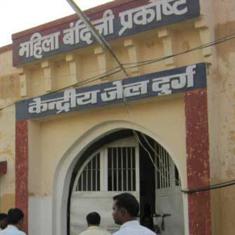In support of the argument, his lawyers have cited a May 28, 2015 order passed by the Supreme Court which quashed the death warrant for the execution of a couple that had murdered seven members of their family in 2008.
In the order, Justice AK Sikri and Justice UU Lalit said: “We find that the death warrant was signed by the Sessions Judge (Amroh) in haste without waiting for the convicts to exhaust the available legal remedies.” The death warrant had been issued on May 21, just six days after the confirmation of conviction and capital punishment, without waiting for the mandatory 30 days to allow the convicts to file petitions for a review of the May 15 judgement. “Right to life under Article 21 of the Constitution extends to the death row convicts as well," the judges said.
The difference in both the cases
But there’s an unambiguous distinction between the UP couple’s death case and the facts concerning Memon. The death warrant for the couple had been issued before they could file a plea for commutation of sentence before the president. But in Memon's case, he had filed the plea before the president in October 2013. President Pranab Mukherjee rejected his plea for clemency in April 11, 2014 on the recommendations of the Maharashtra government and the Union Home Ministry, saying there was no cogent reason to commute this sentence.
Memon then filed a review petition in the Supreme Court, which was dismissed on April 10, 2015. He followed up with a curative petition in the Supreme Court, which was heard and dismissed on July 21. The death warrant was issued on April 29, ahead of the filing of the curative petition.
His lawyers argue that the filing of a curative petition should also be construed as resorting to last remedy. They argue that legal and constitutional remedies available to a death convict include filing a review petition in the Supreme Court, appealing for mercy or commutation of sentence before the president, and filing a curative petition in the court, if the plea is rejected.
If the judges were to accept the argument, it opens up a small window for a possible change in the date for Memon’s execution fixed for July 30. Legal experts say there is little possibility of the top court commuting the capital sentence awarded to him since his plea for mercy has already been rejected by the president.
A day after his curative petition was dismissed in the Supreme Court last week, Memon appealed to the Maharashtra governor. Reports indicate that the decision will be taken after the Supreme Court ruling on Monday.
Memon’s petition is listed for hearing before a bench of Justices Anil Dave and Kurian Joseph, who had earlier dismissed his review petition.
Memon also wants to move another petition seeking a review of the two-page order passed by a bench headed by Chief Justice HL Dattu that had dismissed his curative petition early this week. Legal pundits feel acceptance of his petition by the court could infer that a condemned prisoner is also entitled to file a writ petition after having availed all the legally acceptable remedies.










